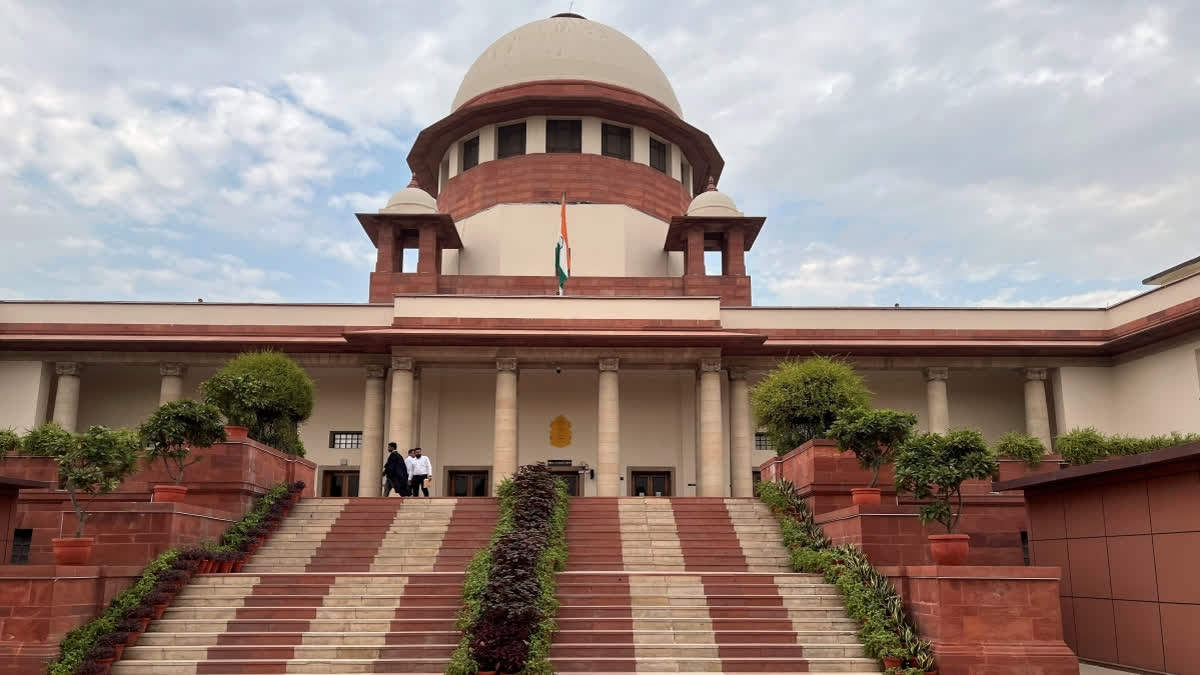New Delhi: In an over three-decade-old property dispute, the Supreme Court has said that an agreement to sell does not transfer ownership rights or confer any title on the purchaser of the property.
A bench comprising Justices Vikram Nath and Rajesh Bindal said: “The Agreement to Sell is not a conveyance; it does not transfer ownership rights or confers any title”. The bench noted that what is prohibited or barred under the Fragmentation Act was the lease/sale/conveyance or transfer of rights. “Therefore, the Agreement to Sell cannot be said to be barred under the Fragmentation Act," said the bench, in its November 2 order, while deciding a civil appeal in a property dispute.
In the present matter, the parties had entered into an agreement to sell in 1990. However, the seller later refused to execute the sale deed, leading to a dispute. The primary issue before the court was whether the agreement to sell itself was in violation of Section 5 of the Karnataka Prevention of Fragmentation and Consolidation of Holdings Act. The law prohibited the registration of certain sale deeds.
The bench noted that the suit could have been decreed without there being any violation of the law once the Fragmentation Act itself had been repealed in February 1991. “Further, the High Court did not hold that the suit was barred by Section 5 of the Limitation Act. The First Appeal Court had considered this aspect and having decided the said issue in favour of the appellant, we need not go into that question at this stage”, noted the bench.
The apex court said what is further noticeable is that the respondents received the full consideration and had also transferred the possession of the property in question, as such other defences may not be available to them. Even the issue of readiness and willingness on the part of the appellant would not be relevant, it noted.
“The appeal deserves to be allowed. The impugned order and judgment of the high court (Karnataka) dated November 10, 2010, is hereby set aside, and the judgment of the First Appellate Court dated April 17, decreeing the suit of the appellant, stands restored”, said the bench.
On May 28, 1990, the appellant (Munishamappa) and the respondents (M Rama Reddy and others) entered into an agreement to sell, in which the property in question was to be sold for Rs. 23,000/-, and the entire sale consideration was paid before the execution of the agreement to sell, and possession of the property in question was also handed over to the appellant. The parties deferred the execution of the sale deed due to the legal restriction under the Act.
On February 5, 1991, the Act was repealed and thereafter, the appellant claims to have repeatedly requested the respondents to execute the sale deed, which was merely a formality since the entire sale consideration had already been paid by the appellant, and they had taken the possession of the property in question, which they continued to hold. However, the respondents refused it.
The appellant filed the suit for specific performance, which was dismissed by the trial court finding the agreement to sell was doubtful and it was beyond the period of limitation. However, the appellant won in the regular first appeal. “The respondents preferred Second Appeal before the High Court, which came to be allowed by the impugned judgment dated 10.11.2010, only on the finding that the Agreement to Sell was in violation of the Fragmentation Act, and therefore void”, noted the bench. The appellant challenged this judgment before the apex court.
There was no issue framed with respect to the violation of the Fragmentation Act, and it was not pleaded in the written statement filed by the respondent. The defence taken by the respondent was that he never executed the agreement to sell. “However, in his deposition during the cross-examination, he admitted to his signatures on the Agreement to Sell. Thus, in the absence of any issue framed, and given that neither party has pleaded any violation of Section 5 of the Fragmentation Act, the High Court apparently fell in error in holding that the Agreement to Sell was in violation of Section 5 of the Fragmentation Act”, said the apex court.
Also read:



